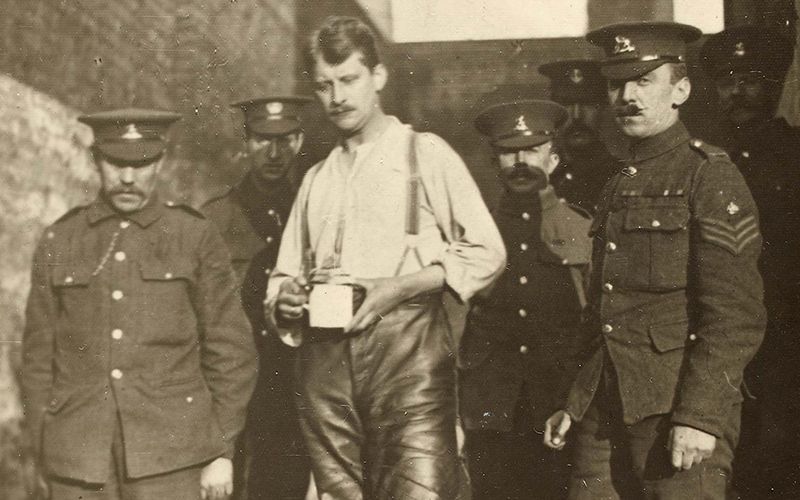The Irish Repertory Theatre is back with a group of outstanding new Eugene O'Neill production that put the pandemic firmly in their rearview mirror.
“The one thing that explains more than anything about me is the fact that I’m Irish,” playwright Eugene O’Neill told his son Eugene Jr in 1946. “And, strangely enough, it is something that all the writers who have attempted to explain me and my work have overlooked.”
America's greatest playwright, the head of them all, has finally found a champion who understands just how deeply O'Neill was shaped by his Irish heritage because for decades the Rep has been doing more to secure his legacy as an Irish (American) playwright than any other theatre in America.
For a start, artistic director Charlotte Moore and producing director Ciaran O'Reilly both understand O'Neill's profound influence on native-born Irish playwrights like Brian Friel and Tom Murphy – and how enduring that conversation has been.
That's why you will hear an echo of these Irish masters in the Rep's latest production of O'Neill's brutal 1942 play "A Touch Of The Poet" (which was not performed until 1958, after his death).
Directed by O'Reilly, the production was scheduled to debut just as the pandemic began in 2020, so its long-postponed arrival to the main stage is a personal and creative triumph for the Rep.
Set in 1828 in a village a few miles away (in the wrong direction) from Boston, Massachusetts, O'Neill introduces us to the imposing Cornelius “Con” Melody, a former sergeant major in the Napoleonic wars who now inhabits the diminished status of barkeep in an isolated New England country tavern, quite literally the “Jove in a thatched house” Shakespeare wrote of.
Con Melody (Robert Cuccioli) is a big, brooding, Byronic figure who although still physically imposing, has conspired to haunt himself and his family with tales of his glorious past as the son of a country estate owning Irish father and then later as a distinguished military man.
But every story he tells is undermined by his actions, his nature, or by his true history, we soon discover. Here is a man in full flight not just from the present but from reality itself and anyone, including his wife and daughter, who dare to stand between him and his dreams gets savaged and discarded.
O'Neill was entirely right about the Irish note, the play reminds us. This story echoes his own tragic family's and in a much wider sense it echoes the violent dispossession of the Irish. Memories of better times before the fall of an Arcadia are a recurrent theme in Irish drama, as well as the hallmark of a colonized people.
There is so much to consider in O'Reilly's impressively lucid production, which rings clear as a bell from the opening scene to the curtain call. Con asks patience for himself but shows none to anyone else, he is tolerant of his foibles but censorious of others, he laughs at the foolish pretensions he sees all around him but struts about like a peacock as though commanding a battlefield.
He's a walking paradox in other words, and sometimes just as perplexing to himself as he is to others. The one person in his life who understands his stark contradictions without judging him is his devoted wife Nora (Kate Forbes) who understands his inner conflict because she has witnessed what it has made of him.
But his daughter Sara (Belle Aykroyd) has less patience for Con's self-deceptions because she understands it means a retreat from the real world, not an embrace of it. She chides her pompous father bitterly for his grand illusions because of the toll they exact on his only willing accomplice, her poor long-suffering mother.
How the head and heart survive the unsurvivable is the play's theme, and Ireland's, and O'Neill is ruthless about the personal cost of it. Here are people who have been cheated of their inheritance, then mocked for having fallen so low by the people that have purloined it all. It's a double larceny that is somehow then internalized so that those who have been swindled come to blame themselves for the theft.
"A Touch Of The Poet" is an angry but eloquent roar of a play that understands the limits of art when it comes to human healing, and a deep exploration of the generations of inherited trauma that attend a theft as large as the English misadventure in Ireland.
American critics may not always understand why we should care about this deluded and deluding Irish tavern-keeper or his apparent delusions of grandeur, and if they don't always it's because – unlike Nora – they can not see behind him to the centuries of still smoking battlefields that shaped him.




Comments